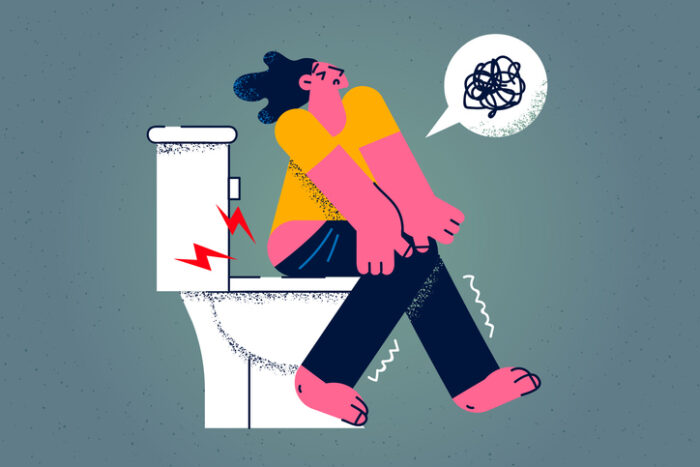[노윤정 약사의 건강교실]
entrance 2022.10.08 14:00 correction 2022.10.08 13:46
15 shots
entrance 2022.10.08 14:00correction 2022.10.08 13:46
15 shots

‘I want to take food supplements, but I still have diarrhea even if I switch products. Because?’ This is a question that was recently posted in the question and answer section about online dietary supplements. I want to take dietary supplements for health management, but if I take dietary supplements, I will suffer from diarrhea or loose stools. In this case, first of all, it is right to stop taking food supplements. But then, why, only me, do I get diarrhea when I take food supplements? This question is not answered. For these people, we summarize three representative dietary supplements that are most likely to cause diarrhea.
◆ ‘Magnesium’, which has a different possibility of causing diarrhea depending on the raw material and content
Magnesium is an essential mineral for energy consumption and nerve and muscle function. In particular, magnesium deficiency can cause muscle cramps, so it is often visited by people who exercise or who complain of frequent tremors under the eyes. However, when unabsorbed magnesium increases in the intestine, the water content in the intestine increases and the stool becomes thinner. Magnesium is used as a laxative taking advantage of this side effect. Magnesium has a large difference in the absorption rate depending on its chemical form. Magnesium oxide, which is most used as a raw material for magnesium supplements due to its high magnesium content per gram and low price, has a low absorption rate of less than 30% and low bioavailability. Therefore, diarrhea or loose stools are common after ingestion. In particular, if you consume more than 350 mg of magnesium oxide (the maximum limit of daily magnesium intake), diarrhea occurs more frequently.
On the other hand, organic saline preparations such as magnesium lactate or magnesium lactate have a low magnesium content per unit gram, but have greater absorption and bioavailability than magnesium oxide, which tends to cause fewer reactions. gastrointestinal adverse events such as diarrhea. So, if diarrhea occurs after taking dietary supplements, check the magnesium content and raw materials first. If you suffer from frequent diarrhea after ingesting a dietary supplement containing magnesium oxide and want to supplement magnesium, we recommend that you take magnesium in the form of organic salt. Magnesium is also widely sold in combination with calcium. If you have recently taken a calcium supplement and have diarrhea, it may be helpful to check that the product is not too rich in magnesium.
◆ If you consume more than 2,000 mg per day, “Vitamin C” is more likely to cause diarrhea.
Vitamin C is needed for the formation of connective tissue and the absorption of vitamin C. It also, as an antioxidant, helps improve skin health and vitality, so many people take it as a single agent. If the daily intake of vitamin C is less than 180mg, about 70 ~ 90% is absorbed, but if more than 1,000mg (1g) is consumed, the absorption rate drops to less than 50%. Unabsorbed vitamin C, such as magnesium, can increase the water content of the large intestine and cause diarrhea or loose stools. In particular, people who consume more than 2,000 mg of vitamin C per day as a method of high vitamin C intake should be more careful.
Vitamin C is also sold in chewable tablets for convenience. Chewable Vitamin C uses sugar alcohols such as sorbitol for the purpose of adding sweetness to relieve the sour taste of Vitamin C. Sugar alcohol is heavily used by harmful bacteria in the gut and can increase gas or soft stools after l ingestion. Therefore, due to the sugar alcohol, chewable vitamin C often causes gastrointestinal side effects such as diarrhea even with intakes below 2,000 mg. Therefore, if you want to consume more than 1,000 mg of vitamin C per day, it is better to use general vitamin C tablets to be swallowed with water rather than chewable tablets. The vitamin C content in multivitamins ranges from 100 mg when low to 1,000 mg when high. Therefore, if you feel uncomfortable due to diarrhea after taking a dietary supplement, it is also helpful to check if the vitamin C content in the supplement you are taking is not too high.
◆ ‘Omega-3’ can cause fatty stools
Omega-3 is a food supplement that takes a high dose of fish oil at one time. Therefore, there are people who suffer from fatty stools after consuming omega-3s due to the differences in the digestive capacity of the individual. It is not that the water content in the stool is increased like vitamin C or magnesium, but that the oil is not digested and absorbed properly, so the composition of the stool changes. Think of it as the same situation as having fatty stools after eating a lot of offal or beef. This is rarer than vitamin C or magnesium. However, many people don’t think omega-3 is the cause, so remembering it can help you create a healthy nutrient-eating habit. Omega-3 is sometimes found in eye health products or memory enhancement products. So, if you have diarrhea or loose stools after taking a dietary supplement that doesn’t contain vitamins or minerals, it’s also helpful to check if it contains omega-3s.




